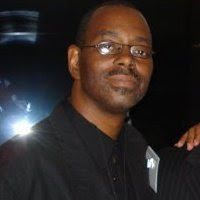 KPFA Weekend News Anchor David Rosenberg:
KPFA Weekend News Anchor David Rosenberg: One of Uganda's three leading opposition presidential candidates, and others, predict that Uganda could become the next Egypt or Tunisia after next Friday's presidential and parliamentary elections, which few expect to be free or fair. Ann Garrison has more.
KPFA/Ann Garrison: Last week the world watched Egyptians in the streets of Cairo, and heard voices of the Egyptian revolution on radio, TV, Facebook, Twitter, the blogosphere, and elsewhere on the Internet. They included the voice of this Egyptian street protestor, which nearly two million people have now heard on the Youtube alone:
Egyptian Street Protestor: We will not be silenced. Whether you are Christian, whether you are Muslim, or whether you are an atheist, you will demand your goddamn rights, and we will have our rights, one way or the other. We will never be silenced.
KPFA: Milton Allimadi, Ugandan American editor of the New York City-based Black Star News says that Egypt's uprising was really a global uprising, with scenes beamed all around the world, and both Egyptians and Mubarak well aware that the rest of the world was watching. Allimadi also agrees with Dr. Kizza Besigye that Uganda could be next.
He spoke to KPFA from New York City:
Milton Allimadi: This should be seen as a sequence of events now, so the world will see this as interconnected. Egypt was seen as connected with Tunisia, so I see this as a possibility in Uganda as well. Ugandans are very savy; they're very sophisticated consumers of news and they watched developments in both Tunisia and Egypt very carefully.
KPFA: The majority of Ugandans are subsistence farmers. Do you have an idea of what kind of media and Internet access they have?
Milton Allimadi: The majority of Egyptians are subsistence farmers as well, but the people that are connected to Facebook, the Internet, and to Twitter, live in the large cities such as Cairo. The same applies to Uganda. The sophisticated Internet consumers of news live in cities such as Kampala, Entebbe, Jinja, Gulu, Mbarara, Masaka, and these are the ones that would likely show their protest in these urban areas and that's where it counts.
KPFA: So you think that, if there is an uprising, it will take place in the cities?
Milton Allimadi: Absolutely; these kinds of uprisings invariably take part in the cities. That's where most international, as well as local, media, are focussed and concentrated. And, in Uganda, I think there's a sense by international media that this is a ground changing election, because the BBC, which has traditionally been very apologetic and sympathetic to President Museveni, has now for the first time deployed a major contingent of reporters inside Uganda, so the coverage is going to be very different and very significant this time around.
KPFA: Do you know of any effort to block the news and or the Internet?
Milton Allimadi: Not yet, but there may be plans to do that come election time. And I know there are many organizations inside and outside Uganda who are working on setting up alternative networks to be able to disseminate information.
KPFA: U.S. Deputy Secretary of State James Steinberg and Under Secretary of State for African Affairs Johnnie Carson flew into Kampala, Uganda last week to meet with Uganda's three leading opposition presidential candidates, Kizza Besigye, Norbert Mao, and Olara Otunnu, all of whom told them that Friday's elections will not be free and fair. Steinberg and Carson then went on to meet with Ugandan President Yoweri Museven, who has been one of the U.S.A.'s closest allies and military collaborators since the end of the Cold War. Before leaving, Steinberg gave a speech at Kampala's Makerere University about the importance of free and fair elections, and protecting human rights for all, regardless of race, gender, religion, or sexual orientation.
For a longer version of this interview with Milton Allimadi and for ongoing updates on Uganda's election, see the websites of the San Francisco Bay View and AfrobeatRadio.net.
For Pacifica/KPFA and AfrobeatRadio, I'm Ann Garrison.















